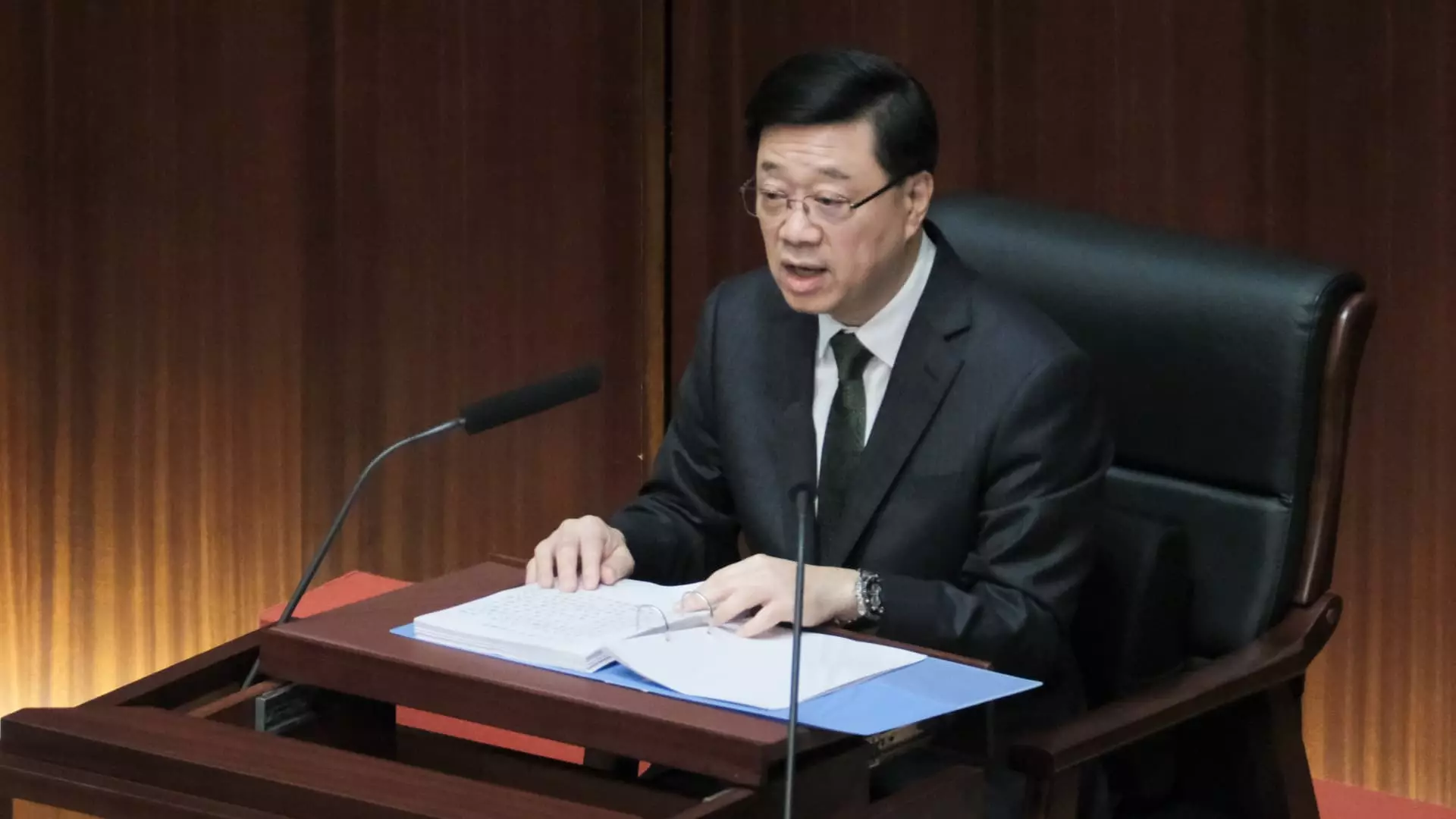Hong Kong has long been recognized as a vibrant global financial center, but beneath its bustling facade lies an acute housing affordability crisis that continues to cripple the lives of many residents. As urban space grows increasingly scarce, the vast population struggles to secure decent housing, particularly the youth who are often trapped in a cycle of unsustainable living conditions. Recent policy announcements by Chief Executive John Lee tackle this pervasive crisis, aiming to provide relief to the city’s young people who face unique obstacles in entering the housing market.
A Youth-Centric Approach
In his latest policy address, Lee flagged the pressing issue of housing affordability as “an issue of great public concern.” He proposed measures explicitly designed to enhance access to subsidized housing for citizens under the age of 40. By allocating an additional ballot number to younger applicants in the Home Ownership Scheme, the government aims to improve their chances of securing a home. This initiative is critical given the alarming trend wherein many young Hong Kong residents are reportedly opting to decline promotions and salary increases just to maintain their eligibility for public housing—a sign of desperation in a market that is seemingly impenetrable.
The planned increase in the quota for the “White Form Secondary Market Scheme” further underscores this focus. By reserving an additional 1,500 units specifically for those under 40, the government is acknowledging and responding to the realities of an aging population, where many young individuals feel compelled to remain in the public housing system rather than venture into a private market that appears daunting and out of reach.
The conditions of housing in Hong Kong, particularly concerning subdivided flats, are another significant point of contention. The Demographia International Housing Affordability report has consistently ranked Hong Kong as the least affordable housing market globally, with many living in “shoe-box sized” apartments that lack basic amenities. These cramped living spaces raise significant health and safety concerns. In response, the announcement of a new system aimed at converting substandard units into “Basic Housing Units” represents a step in the right direction. By implementing stricter requirements for such units—including the installation of windows and toilets—there exists a glimmer of hope that living conditions can be improved.
The momentum toward improving housing availability is evident in the government’s commitment to complete 9,500 new public housing units in the coming year, with an ambitious target of 30,000 units by 2027-2028. Currently, Hong Kong residents face an exasperating average wait time of 5.5 years for public housing. However, the administration’s projections suggest that this wait could be trimmed to 4.5 years by 2026-2027, an enticing prospect for those desperate for stability and security in housing.
Lee’s third policy address notably diverges from previous reports that leaned heavily on national security and recovery efforts post-Covid-19. Instead, this year’s address was steeped in a commitment to enhancing residents’ livelihoods. The social context surrounding these policies is crucial, as it reflects a government that recognizes the urgent need to pivot away from top-down perceptions of governance to a more empathetic approach that truly seeks to address citizen needs, particularly in light of recent civil unrest.
While these measures initiated by Chief Executive John Lee represent an essential step toward alleviating the housing crisis in Hong Kong, the reality remains that substantial challenges lie ahead. The persistent threat of affordability, coupled with the pressing need for quality living standards, means that government efforts must be both sustained and adaptable. The focus on youth housing must also be maintained, ensuring that the voices of younger generations are heard in the policymaking process. Only through commitment, innovative solutions, and sincere engagement with community needs can Hong Kong hope to reclaim its status as not just a prosperous city, but also a livable one for all its residents.


Leave a Reply